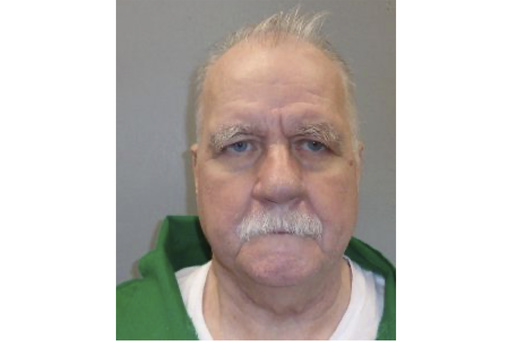
COLUMBIA, S.C. — The South Carolina Supreme Court has scheduled March 7 for the next execution in the state’s increasingly active death chamber.
On Friday, the justices dismissed a motion by Brad Sigmon’s legal team to postpone the scheduling of his execution until they could obtain autopsy results from the recent lethal injection of an inmate, who was the third to be executed since September.
Sigmon’s attorney explained that they are seeking clarity on whether Marion Bowman received two doses of pentobarbital during his execution on January 31. They requested sufficient time to analyze his autopsy report, which would help Sigmon make an informed decision about his method of execution—whether through lethal injection, the electric chair, or a firing squad.
In a court filing dated Wednesday, his attorneys stated, “With the information currently available to Mr. Sigmon, he cannot start to evaluate, let alone argue, which method is more inhumane.”
At 67 years old, Sigmon is on death row for the brutal murders of his ex-girlfriend’s parents in 2001. He assaulted the couple with a baseball bat as they were in different rooms of their Greenville home, attacking each one repeatedly upon discovering that they were still alive.
Following the attacks, Sigmon abducted his ex-girlfriend at gunpoint, though she managed to escape his vehicle. Prosecutors allege he fired at her as she fled but missed.
In his confession, later transcribed by a detective, Sigmon stated, “My intention was to kill her and then myself. That was my intention all along. If I couldn’t have her, I wasn’t going to let anybody else have her. And I knew it got to the point where I couldn’t have her.”
His lawyers highlighted that upon execution, Sigmon would be significantly older than any other inmate executed since the reinstatement of the death penalty in 1976. Attorney Gerald “Bo” King remarked that Sigmon is a model inmate who works diligently to atone for his past crimes, which stemmed from a severe mental health crisis.
King argued that executing Sigmon would only serve as a chilling reminder that South Carolina disregards the possibility of redemption, regardless of genuine repentance.
Sigmon will have until February 21 to select his method of execution. If he fails to make a choice, the default method will be electrocution. Although the firing squad has never been used, the electric chair last claimed an inmate’s life in 2008.
After a significant 13-year gap in executions, South Carolina resumed them last year partially due to difficulties sourcing drugs for lethal injections. A newly enacted shield law in 2023 has concealed the identities of those involved in the execution process, including the drug suppliers and the execution teams.
Defense lawyers for Sigmon and other inmates on death row have spent months requesting further information regarding the use of pentobarbital in lethal injections and the administration protocols.
According to reports from prison officials, two substantial doses of pentobarbital were administered to Richard Moore, the inmate executed on November 1, spaced 11 minutes apart. However, a defense medical expert indicated that the presence of fluid in Moore’s lungs likely caused him to experience a sense of drowning during the execution, which lasted approximately 23 minutes.
Conversely, a state anesthesiologist argued that fluid accumulation in the lungs is a common occurrence for prisoners subjected to lethal injections, asserting that witness statements and available evidence suggested Moore was not conscious long after the sedative was initially injected.
Prison officials have refrained from detailing why Moore received an additional dose of the sedative or acknowledging whether that practice is standard, citing the shield law. They have also not confirmed if Bowman was similarly treated during his execution last week.
The first inmate executed following the restart of capital punishment, Freddie Owens, opted out of an autopsy due to personal religious beliefs.
Upon resuming executions in September, South Carolina adopted new protocols, switching from a three-drug lethal injection system to the exclusive use of pentobarbital. State officials have indicated that the new methods align with those utilized in executions at the federal level and in numerous other states.
Sigmon, along with two other death row inmates, has exhausted their usual appeals. The state Supreme Court has assured that they will stagger executions by at least five-week intervals to allow prison staff and attorneys adequate time to manage legal issues.
Since the reinstatement of the death penalty in the U.S. in 1976, South Carolina has executed 46 inmates. In the early 2000s, the average was three executions per year, with nine other states surpassing South Carolina in the number of executions performed.
However, following a pause in executions, the state’s death row population has significantly decreased. In early 2011, there were 63 condemned inmates, but that number has since fallen to 29. Approximately 20 inmates have had their death sentences overturned due to successful appeals, while others have passed away from natural causes.

